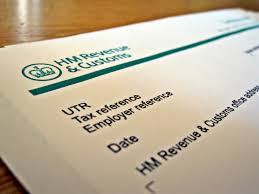Being a landlord has many benefits but also brings with it some responsibilities and risks. There are two common types of fraud that are particularly relevant to landlords: identity fraud, and property-related fraud.

Identity fraud
Fraudsters can intercept your post or your tenants could use bills with your name on them that are sent to that property in order to pretend to be you. They can potentially take out service contracts (mobile phones, subscriptions, etc.) or could even attempt to take out loans in your name using these as ‘proof’ of address/ownership.
Property-related fraud
This is perhaps more serious as it can potentially result in someone transferring ownership of your property without your knowledge. It could be that your tenants are able to convince banks/solicitors that the property is actually theirs, and they may go so far as to forge documents. In extreme circumstances, they may even change their name by deed poll to match yours and then try to sell the property!

For various reasons, property fraud is more likely to occur where properties are unoccupied, rented-out, unmortgaged, or unregistered.
Steps to protect against property-related fraud
In order to protect yourself from being a victim of property-related fraud, there are three key things that you can do.
The first is to register your property with the Land Registry if it is not already. The benefit of this is two-fold. Firstly, you can electronically store the deeds on their central register, meaning physical deeds are not needed and cannot be manipulated. Secondly, having your property registered means that you are eligible for the Land Registry compensation scheme if you do fall victim to property fraud. The Land Registry paid out Ł6.9m for indemnity claims in 2021-22, with fraud/forgery being responsible for a substantial majority.
The second key way to protect yourself is to place a Form LL restriction on the property. The Form LL restriction is also known as the ‘counter-fraud’ restriction as this is its key purpose. This is designed to protect against fraudsters who are able to convince a buyer/lender that they own the property. This restriction essentially means that any transfer of ownership, such as a sale or mortgage, must involve a conveyancer verifying and checking in person that the identity is genuine. It is extremely difficult for a fraudster to convince the conveyancer that they are the true owner as they will need to be able to produce passports, birth certificates and so forth.
The third option is to register for property alerts. This service will email or contact you anytime there is activity against your property, for example, an application to change the registered owner or register a mortgage against the property. The alert will tell you who has applied and when, and you will be able to see if it is genuine or fraudulent.
As a landlord, your property is often a vital asset. Protecting yourself against fraudsters using the above options makes a lot of sense.



